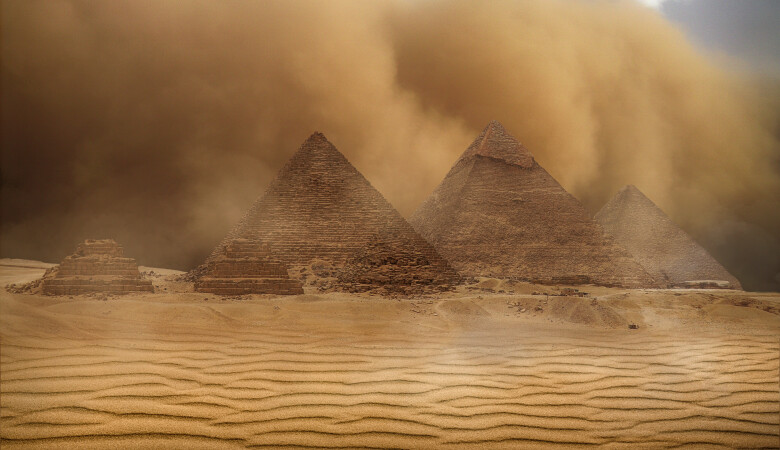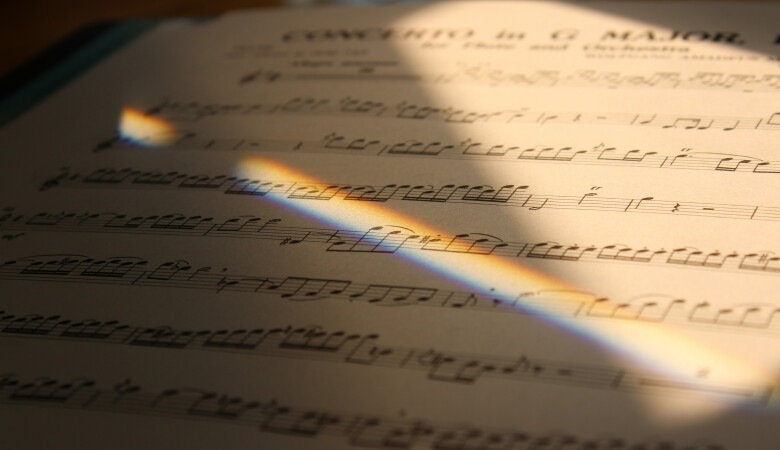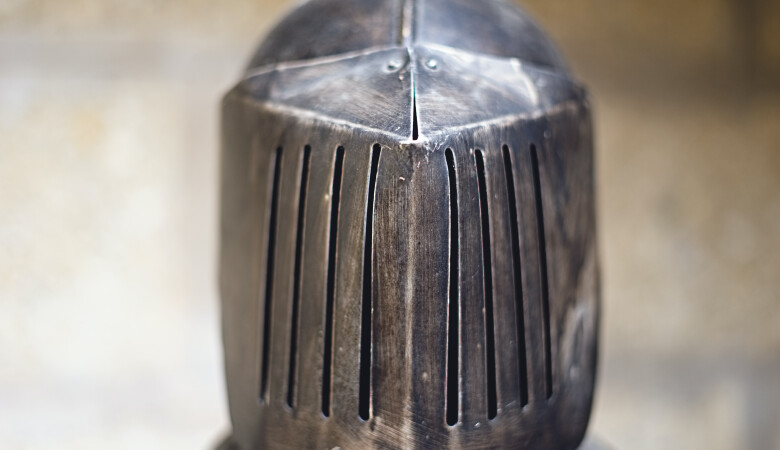As Far as the Eye Can See: The Glory of God to the End of Time (Isaiah Sermon 44 of 80)
August 24, 2014 | Andy Davis
Isaiah 40:1-66:24
Book Overviews
Pastor Andy Davis overviews the last section of the Book of Isaiah and the prophetic word received of events that would happen from his time to centuries ahead.
- SERMON TRANSCRIPT -
In the summer of 1987, I went on my second mission trip, I had been the year before, in Kenya, but this time I went to Pakistan, and toward the end of that summer, we made an incredible trip across the Karakoram mountains along the Karakoram Highway, into China. And the part of that incredible journey was a trip through the Khunjerab Pass, which is the highest pass in the world, in terms of altitude, it's the highest I've ever been while standing on terra firma, almost 16,000 feet. And I remember distinctly that day, it was one of the most spectacular days of my life, because I took my life in my hands and rode on the luggage rack of the van, down the Karakoram Highway, for hours. The kind of thing I wouldn't do now, as a married man with children, but I'm glad I did it, at the time.
And I can't even describe, I can't put into words the scenery that I saw from that lofty perch, from the Khunjerab Pass. You can see mountains as far as... It was a clear day, and just row upon row of mountain ridges, that were just going out before my eyes. It was just amazing, and I stood there and just soaked it all in, and I just thought about it. And then it occurred to me as I was standing there, that these mountains look like they're touching each other, but they're, really, probably 20-50 miles apart. Maybe even more. And this gives me, this morning, as I begin this overview of the last section of Isaiah 40 through 66, a kind of an analogy of what it was like for Isaiah, the prophet, touched by the supernatural power of almighty God, touched by the Spirit of God, to be able to stand at a certain point in history, 7th century BC and to describe, to write down, in timeless words on a scroll, things that wouldn't be fulfilled for centuries. And they're just, literally, side by side with each other, in the words of this scroll. You go from one chapter to the next and from one theme to the next, and they're just one chapter on top of each other, but these events are separated by centuries, even by millennia.
And so, Isaiah, supernaturally endued by the sovereign Spirit of God is able to write about things that were only beginning to happen in his time, or that wouldn't even happen for a long time. He prophesied, for example, the return to idolatry of Judah and Jerusalem under Hezekiah's son, Manasseh, and how that idolatry would lead to the invasion of Judah by Babylon, and how Babylon would destroy Jerusalem and the Temple. The Temple of Jerusalem would be razed by the Babylonians, leading to a small remnant of Jews, exiled to Babylon for their sins. But then, subsequently, the destruction of Babylon, by the Medes and Persians under Cyrus the Great whom he names specifically by name, in two chapters, Isaiah 44 and 45, and how Cyrus the Great would issue a decree to rebuild the ruins of Judah and Jerusalem and let the foundations of the temple be laid. He named Cyrus the Great 100 years before his parents were born, Cyrus's parents.
I've often wondered if they had free will in the naming of their son. Or if there was somebody whispering, "Cyrus would be a good name. Why don't you try Cyrus?" But how this specific prophecy had been written down a century before that. And then, how this small remnant of Jews 42,000 of them, he didn't say the number, but a small remnant of Jews would return to the rubble of Judea, the rubble of Jerusalem and rebuild it? And re-establish a Jewish presence in the Promised Land, leading to the greatest single event in redemptive history, and that's the life-death resurrection of Jesus Christ, the Redeemer, who's ministry, he saw more clearly than any other Old Testament prophet. Isaiah wrote, very, very plainly of the coming of the Messiah, and his bloody death on the cross, his piercing for our transgressions, and of his bodily resurrection from the dead. All of these things seen seven centuries before Christ was born.
And then, the coming of the Holy Spirit, poured out in abundance like rain on the people of God, and how, as a result of the sovereign activity of the Spirit of God, the sons and daughters of God would spring up like plants from a field. And there are a lot of different ways to look at that prophecy, and we'll talk about them, about the coming of the Spirit, and how Jesus was going to be a light for the Gentiles, that he might bring the salvation of God to the ends of the earth. And how the Gospel would spread to the ends of the earth and be successful there and there would be Gentiles who would believe in this Jewish Savior. And they would repent of their sins and trust, and they would call on the name of the Lord while he was near and find salvation in Jesus, how this would happen even to the ends of the earth and to the ends of time.
But how the final wrath of God would be poured out on the earth, for its wickedness and its sins, leading to the second coming of Jesus Christ. And debatably, we can talk about it, but possibly, the millennial kingdom. And if there's any Scripture that describes in detail the thousand years reign of Christ on earth, it would have to be Isaiah, although that's debated. But how people live to unnatural old age before they die, and how there's an astonishing flourishing of agriculture in the land, and all of these things. And then, what's not debatable is judgment day beyond all of that, and the separation of the entire world into believers and unbelievers and a clear depiction of the final place of condemnation, hell, in language that's right there to the very end of the book of Isaiah, but then also a depiction of the New Heavens and the New Earth, the home of righteousness is coming. All of these things, like those mountain ridges, one on top of the other, you just can reach out and touch them all as you read this book.
But separated in actuality by dozens, hundreds, even thousands of years, and Isaiah saw it all. So I have a different image from another mission trip I made. A number of years later, I was preaching in Poland, and we were in a very beautiful area, rolling green hills, lakes, and I was in a hotel I was writing on the balcony of the hotel. And I looked out from where I was on the sixth floor, and just so pretty there, in Northern Poland, and there was this ultra light, you know those little planes that people fly they're like powered hang gliders? Those guys are maniacs. But I would love to have been that person. He was just barely missing the high tension power lines which I was grateful for, but he was just soaring out over this lake and just... And I'd like to kind of do that, but without any danger today and just move out over these mountain ridges of prophecy. And I want to draw out seven grand, glorious themes that are going to be recurring in these 27 chapters. Kyle said I'm going to be preaching for the next few weeks, is that what you said Kyle? Is that all I have? I better get going. I've got a few weeks.
But just amazing journey that we're going to be on as we begin in Isaiah, and I want to draw out seven grand themes, that we could refer to again and again, I wonder if we need laminated cards in the pew back and as I preach chapter after chapter after chapter, in Isaiah 40 through 66.
Setting the Context
Okay, this morning we're going to be looking at themes one, four, six and seven. Alright, the next week will be themes two, five, and seven, next week, we're going to do one, two, three and five, it's just going to keep coming up again and again, these same seven themes. So that's the task in front of us. I want to set the context, I already done it briefly, but Isaiah is standing at this juncture, Isaiah 1 through 39, the central kind of drama there has been Assyria, and the Assyrian invasion of the Northern Kingdom of Israel and their deportation of the Jews in Israel, the Northern Kingdom. And then he goes on into the Southern Kingdom of Judah and is stopped right at the walls as we saw when I was preaching last time how the Lord sent the angel of the Lord and he killed 185,000 Assyrian troops in one night. And Sennacherib king of Assyria, turned and went back, God sovereignly led him back to his home city of Nineveh and there he died. And so you get a feeling that Assyria's done now. And though the Assyrian empire would continue for another hundred years or so, it was ever waning in power from that point on.
And now we have the rise of the next great power in that region of the world, the ancient near east and that is Babylon. At the time that Isaiah lived, it was a city in the Assyrian Empire, a conquered little city state, but Isaiah saw with the eyes of prophecy, what was coming, and that was that Babylon would rise to be a mighty empire, reach its zenith, and then in a very short time, be toppled itself by the Medes and Persians under Cyrus the Great. He saw all of that. Now you may ask how does he see all this? How does he know what the future holds? How can he predict so clearly what is coming? Well, 2 Peter 1 said this, above all, you must understand this is about prophecy. This is what sets Christianity apart from every other world religion. Fulfilled prophecy specifically focused on the person and work of Christ. This is what separates Christianity apart. So those of you in the college campus, you're going to face this again and again, What makes Christianity different than Islam, Buddhism, Hinduism?
Fulfilled Prophecy
Start with this, "Fulfilled prophecy." Fulfilled prophecy. And so, 2 Peter 1:20-21, "Above all, you must understand that no prophecy of Scripture ever had its origin in the will of man." Prophecy never had it's origin in the will of man, "but men spoke from God as they were carried along by the Holy Spirit." And so the Holy Spirit came into Isaiah the prophet, and he sat down and wrote on a scroll these timeless words about all of these things that were coming. And I want to draw out these themes now and make them plain. God is able to predict the future and no one else can because God is sovereign over the future that he predicts. He is the ultimate self-fulfilling prophecy or prophet. He says, in effect, "This is what I'm going to do and nothing can stop it." And He is the King of the universe, and so he can make predictions. And he challenges the idols and he has them come in again and again on this very issue, "Bring in your idols," he says in Isaiah 41. "Let's see what they can do. All right, idols, tell us the former things if you can, and what their final outcome would be, and then predict to us, the future things. Yes, tell us what the future holds. Do something, good or bad, so that we may know that you are gods."
And so he does this again and again in Isaiah 41, Isaiah 44, Isaiah 45, Isaiah 46, 48. "I can predict the future and no one else can." And so he has this power to do this in detail.
I. The Infinite Greatness of God
And so, now let us bring forth these themes and let's begin with the first and greatest. And it's a central theme of the Bible, it's a central theme of the universe, it should be the central theme of your life and that is, The infinite majestic greatness of Almighty God. We're going to see a celebration of the attributes of God in these 27 chapters of Isaiah that will take your breath away, strengthen your faith, give you courage to face the trials that you will face in your lives. First and foremost, the infinite greatness of God over all creation. God is majestic and powerful and infinitely greater than the creation he made.
We'll see this in Isaiah 40:12, where it says, "Who has measured the water in the hollow of his hand, or with the breadth of his hand marked off the heavens? Who has held the dust of the earth in a basket? Or weighed the mountains on the scales and the hills in a balance?" God is also infinitely majestic over all the idols and the gods. Isaiah 40:18, 20 says, "To whom then will you compare God? What image will you compare him to? As for an idol, a craftsman crafts it and the goldsmith overlays it with gold and fashions silver chains for it. A man too poor to present such an offering selects wood that will not rot. He looks for a skilled craftsman to set up an idol that will not topple." Well, our God isn't made of gold or silver or wood and He will never topple. He doesn't need to be nailed down, no chains need to be put on Him to support Him. He is an infinite and mighty God and all of the idols and gods of the nations are nothings. God is also infinite, and majestic over all the nations themselves including their kings and princes and rulers and all the mighty men and women of the earth.
So he says in Isaiah 40:20-22, "He sits enthroned above the circle of the Earth, and its people before him are like grasshoppers. He stretches out the heavens like a canopy, and spreads them out like a tent to live in. He brings princes to nothing and reduces the rulers of this world to nothing. No sooner are they planted, no sooner are they sown, no sooner do they take root in the ground then he blows on them and they wither and the whirlwind sweeps them away like chaff." And so because of this God is infinitely great and majestic over all of time and history. He rules over history. In Isaiah 41:4, he says this, "Who has done this, and carried it through calling forth the generations from the beginning." Listen to this. "I the Lord with the first of them and with the last, I am He." God calls forth each generation by His sovereign power. He knits each generation of people together in their mother's wombs and he is with them as they rise to their, the zenith of their power and their strength and their energy, and then they fall off, age, and die. He's with every generation, he was with the first and he will be with the last.
He rules over all of human history. He is omnipotent. He is absolutely immeasurable power. Again, Isaiah 40:26, "Lift up your eyes and look to the heavens, who created all these? He who brings out the starry hosts one by one and calls each of them by name. Because of his great power, and his mighty strength, not one of them is missing." He is also infinite in his wisdom and knowledge. Again, Isaiah 40:28, "Do you not know, have you not heard the Lord the everlasting God, is the creator of the ends of the Earth, he will not grow tired or weary, and his understanding no one can fathom."
And yet how incredibly gentle and tender is this infinitely majestic God with sinners like you and me. How it says in Isaiah 40:11, "He tends His flock like a shepherd. He gathers the lambs in his arms and carries them close to his heart. He gently leads those that have young." So the scope of this God is immeasurable. The scope of Almighty God from his tenderness, all the way up to measuring out the Cosmos with the breadth of his hand.
So Isaiah pictures a God who is both terrifyingly immense in His power and knowledge, but also meek and lowly and tender-hearted in dealing with sinners. The display of the glory of this great God is the center piece of Isaiah 40 through 66. And so it says in Isaiah 40:9, "You who bring good tidings to Zion, go up on a high mountain you who bring good tidings to Jerusalem, Lift up your voice with a shout, lift it up. Do not be afraid, say to the towns of Judah, behold your God." That is my privilege today, I get to do that. I get to just say to you the towns of Judah spiritually, Zion, spiritual Zion, "Open your eyes and behold your God. And there is no problem in your life that even comes close to his capacities and his power and his grace, and his love, for you. So just behold, your God." How are you going to do that? Listen to the Word. Because faith is the eyesight of the soul, and by hearing God's Word, we see our God who cannot be seen. First theme.
II. The Sinfulness of the Idolatrous Human Race
Second theme. The sinfulness of the idolatrous human race. The wickedness of idolatry is a major theme of Isaiah 40 through 66. He mentions it again and again. This great God of ours, this great God of Isaiah 40-66 is a jealous God. He created each of us to love him, to cherish him, to worship him, to live openly for him. That's why He created you and me. And so he says in Isaiah 42:8, "I am the Lord, that is My name. I will not give My glory to another or My praise to idols." He's jealous over his glory and over his place in your heart. But instead sadly, tragically the human race, all of the human race, not just the Jews, under Manasseh and not just the Babylonians, with Bel and Nebo and all that, not just them, not just those totem pole worshipping Aboriginal tribes or whatever, not just all people apart from his sovereign grace are idolaters.
Here, I'm going to reach to Romans 1:25 for the best definition of idolatry. "They exchanged the truth of God for a lie, and worshipped and served created things rather than the creator who's forever praised. Amen." That is idolatry. When you exchange the worship you should be giving to God and you're worshipping, living for, ultimately living for some created thing, you are an idolater. And all of us were idolaters apart from the saving grace of God. God is at war with the idols in Isaiah 40-66, at war with them. He hates them and he's fighting them. Idols are mentioned 19 times in these chapters. So again and again, he brings them up. And as I mentioned, he challenges them probably four or five times to a duel. He wants to take them on. I love that part that I already quoted to you where He says, "Do something. But you're nothing, you don't even exist." But our God is the living God and so he wants to challenge the idolatry that is rife in our culture, our time. And let's be specific. The idolatry that tempts your own hearts, too. It is dangerous to read about the idolatry of the Jews or the idolatry of the Babylonians and say, "What wicked people, they are, glad I'm not like that."
So God through Isaiah the prophet mocks the idols, makes fun of them. We've already seen that some of it, how these idols have to be nailed down or they'll topple. You remember the memorable passage in Isaiah 44, where you've got this guy who goes out and selects a worthy piece of wood, drags it home, cuts it in half and uses half of it to cook his dinner, and warm himself in his workshop, and then uses the other half and carves it and makes it into an idol and he bows down and worships it and says, "Save me, you are my god." And in case you missed the details, he goes back over it. Half of it he used to cook his meal and the other half he bows down and prays to it. It's just mockery.
So, idolatry is exposed. God's hatred for idolatry is revealed, but the idolatry of the entire human race is also clearly unfolded as well. You know that Hezekiah led the Jews of Judea in a revival of true religion, biblical religion. Got rid... Finally got rid of the high places. Had everyone worship in the pattern of the Law of Moses. But then he died and his son Manasseh took his place and vigorously led them all back into wicked idolatry, including to the point of sacrificing one of his own sons, a descendant of David, a son of David, in the fire to Molech. Well that brought about the exile to Babylon, it brought about the punishment of God. Judah indulges in idolatry, and this is the very reason why Judah will be sent into exile. Listen to Isaiah 42:17-19. "Those who trust in idols, who say to images, you are our gods will be turned back in utter shame. Hear you deaf, look you blind and see. Who is blind, but my servant, and deaf like the messenger I send? Who is blind like the one committed to me, blind like the servant of the Lord?"
Well, that's Judah. But all the nations are doing the same thing. And Isaiah 46:1, the prophet exposes the gods of Babylon, Bel and Nebo. You know Bel from which you get the name Belshazzar, the final king of Babylon. Nebo from which you get the name Nebuchadnezzar. These were the two key gods of Babylon. And they are exposed as the false burdens that they are, they're heavy, made of gold and they have to be loaded on ox-carts and the oxen, they're stumbling under the weight of these things. And it's saying, the crushing idolatry of the world will destroy everyone who worships those idols. So this is a problem to the ends of the earth.
III. The Wrath of God in the Judgment of Sins
Theme number three. The wrath of God in the judgment of sins. This is a major theme throughout the Bible, but in Isaiah 40-66. God is actively involved in human history. He's not the absentee god of Dius who started the universe up like a complex clock mechanism, wound it up and let it run. That's not the God of the Bible, it sure isn't the God of Isaiah 40-66. No, he gets involved, he moves out and one of the number one things that God does in these chapters, is pours out his wrath on idolatrous, wicked, sinful, nations. His just judgments on them, for their sins. God will judge, first his own people and purify them of their sins by slaying the wicked.
Isaiah 51:17-20 says this, "Rise up oh Jerusalem, you who have drunk from the hand of the Lord, the cup of His wrath, you who have drained to its dregs, the goblet that makes men stagger. Of all the sons she bore there was none to guide her. Of all the sons she reared there was none to take her by the hand. These double calamities have come upon you. Who can comfort you? Ruin and destruction, famine and sword, who can console you? Your sons have fainted, they lie at the head of every street, like antelope caught in a net. They are filled with the wrath of the Lord, and the rebuke of your God." So God's judgment began with the house of God, with the Jews, as he pours out his wrath on them, who said that they were Jews, but they really weren't, only in name, only. But they were generally... They were genuinely idolaters and God poured out his wrath on them. And because of that, he destroyed Jerusalem and his temple, the place where he wanted his name to dwell forever but he destroyed it, God did, by the Babylonians.
So it says in Isaiah 64:11, "Our holy and glorious temple where our fathers praised you has been burned with fire. All that we treasured lies in ruins." Why? Because of the judgment of God. But God in his grace, and in his mercy, restrained his wrath completely from the Jews and by his sovereign grace left them a remnant, chosen by grace, he didn't completely exterminate them. The sons and daughters of Abraham, still exist, and God reserved for himself a remnant. He left a remnant. Now, beyond the issue of the Jews, Judah and Jerusalem, we have the consistent activity of God in judging this nation, or that nation, or the other nation for their sins. He's not just a national tribal deity, just the God of the Jews, the God of Abraham, Isaac and Jacob. He is the God of Abraham, Isaac, and Jacob, but he is the God of the entire world. And he is just and righteous and will judge every nation on earth for their sins. This is the God of the whole world. Not just of the Jews.
And so, in Isaiah 63:6 he says, "I trampled the nations in my anger. In my wrath, I made them drunk and poured their blood on the ground." And then 66:15-16, it says, "Behold the Lord is coming with fire and his chariots are like a whirlwind, he will bring down his anger with fury and his rebuke with flames of fire, for with fire and with his sword the Lord will execute judgment upon all men and many will be those slain by the Lord." So we have many cities devastated, many people slaughtered. And the culmination of the righteous judgment of God for sin is hell and that is also pictured in the words of Isaiah the prophet. If you were to go to the very last verse in the book of Isaiah, Isaiah 66:24, you don't have to turn there now, but just listen, this is the very last verse, this is the last word. Isaiah 66:24. "And they will go out and look upon the dead bodies of those who rebelled against me. Their worm will not die nor will their fire be quenched and they will be loathsome to all mankind." That's the end of the prophecy.
Well, Jesus picked up on those same words and used them to describe hell. In Mark 9 he says, "If your eye cause you to sin, gouge it out and throw it away. It is better for you to enter the kingdom of God with one eye than to have two eyes and be thrown into hell, where the worm does not die and the fire is not quenched." Isaiah 66:24.
IV. The Atonement of Sins by the Redeemer, the Suffering Servant—Jesus Christ
Theme number four. The wonderful good news of the gospel of Jesus Christ. Amen. The good news that there is a Savior from this just wrath of God and his name is Jesus. Jesus the atoner of sins, the Redeemer, the suffering servant, Jesus Christ. No one in the Old Testament saw the ministry of Jesus Christ more clearly than Isaiah the prophet. No one. It was Isaiah that saw the Lord seated on a throne, high and exalted, and the train of His robe filled the temple. John 12 tells us, Isaiah said this because he saw Jesus' glory and spoke about Him.
But he saw most specifically the promise of a full payment for all of our sins. Now it's going to begin and I'm going to start with this next week. Isaiah 40:1-2. I'm going to preach three sermons on Isaiah 40. After that, I will try, not promising, but I'll try to keep to a chapter a week. We'll do our best. But I can't do that in Isaiah 40. And look how Isaiah 40:1-2 begins. "Comfort, comfort my people, says your God. Speak tenderly to Jerusalem and proclaim to her that her hard service has been completed, that her sin has been paid for, that she has received from the Lord's hand double for all her sins." Well, there's only one way that sin gets paid for in the Bible and that's with the shed blood of Jesus Christ. There is no other atoning sacrifice, no other atoning sacrifice. So, how then did Jerusalem's sins get paid for? How then is there forgiveness?
Well, the servant of the Lord, so called in the book of Isaiah, this is Jesus. And Isaiah 49:6 says that he is the light for the Gentiles. There's an Intra-Trinitarian conversation there in Isaiah 49:6. God the Father says to God the Son, what his mission is going to be. He says, "It is too small a thing for you to be my servant to restore the tribes of Jacob and bring back those of Israel I have kept. I will also make you a light for the Gentiles, that you may bring my salvation to the ends of the earth." That's Jesus' mission to be the light for the Gentiles that He may bring salvation to the ends of the earth. And so we have this term Redeemer, or redeem. The term redeem or Redeemer is used 22 times in these 27 chapters. Again and again, we have this idea of redemption or redeeming. The word means to buy a slave out of slavery by the payment of a price or to buy a captive out of captivity by the payment of a price. That's what redeeming is.
Now Judah and Jerusalem, the Jews will be captives in Babylon, they have to be bought out from Babylon, they have to be redeemed. And so this is the language used in Isaiah 48:20. "Leave Babylon, flee from the Babylonians. Announce this with shouts of joy and proclaim it. Send it out to the ends of the earth; say, 'The Lord has redeemed his servant Jacob.'" So when the remnant went back to the promised land, when they went back, they were redeemed. Yeah, but the payment hadn't been made yet. It's like a big, grand, glorious redemptive history IOU. An Intra-Trinitarian IOU. Jesus would shed his blood to pay the price of that redemption. That's the only payment there could ever be. And then Isaiah 52:9-10, it says, "Burst into songs of joy together, you ruins of Jerusalem, for the Lord has comforted his people, he has redeemed Jerusalem. The Lord will lay bare his holy arm in the sight of all the nations, and all the ends of the earth will see the salvation of our God." The whole world is in slavery to idolatry and to sin. The whole world is under the righteous judgment and wrath of God. We all deserve it. And Jesus Christ is the Redeemer. Not just for the Jews, that's two small a thing, said God. But a Savior to the ends of the earth for every tribe, and language, and people, and nation, everyone.
And so it says in Isaiah 59:20, "The Redeemer will come to Zion, to those in Jacob who repent of their sins." So the Redeemer is coming. Now, Isaiah 53 is the clearest depiction of how that redemption would come about. Without the shedding of blood there's no forgiveness, the book of Hebrews tells us. And Isaiah 53 tells us who's going to shed his blood. And it says, in Isaiah 53:4-6 of this suffering servant who is Jesus. "Surely he took up our infirmities and carried our sorrows, yet, we considered him stricken by God, smitten by him and afflicted, but He was pierced for our transgressions, he was crushed for our iniquities. The punishment that brought us peace was upon him, and by his wounds, we are healed. We all like sheep have gone astray, each of us has turned to his own way, and the Lord has laid on him the iniquity of us all." But that's not enough there in Isaiah 53, you also have a clear depiction of the resurrection of Jesus Christ from the dead. He wouldn't merely die, he wouldn't merely be pierced for our transgressions on the cross and shed his blood, but on the third day, God would raise him from the dead.
And so we have also in Isaiah 53:9, "He was assigned a grave with the wicked, and with the rich in his death, though he had done no violence, nor was any deceit in His mouth." Verse 11. "After the suffering of his soul he will see the light of life and be satisfied; and by his knowledge, my righteous servant will justify many." He was put to death for our sins but raised to life for our justification. How awesome is that.
V. The Spread of the Word and the Call of the Gospel to the Ends of the Earth
Theme number five. The spread of the word of this gospel, and the call of the Gospel to the ends of the earth. this is the powerful Word of God. You've already heard it alluded to. "All men are like grass and all their glory is like the flower of the field." Isaiah 40:6-8. "The grass withers and the flowers fall when the breath of the Lord blows on it. Surely, the people are grass. The grass withers, and the flowers fall, but the Word of our God stands forever." And then you heard Damien read so beautifully Isaiah 55:10-11 "As the rain and the snow come down from heaven, and do not return to it without watering the earth making it bud and flourish, so that it yields seed for the sower and bread for the eater, so is my word that goes out from my mouth. It will not return to me empty, but will accomplish what I desire and will achieve the purpose for which I sent it." So God's going to unleash this powerful force in the world called his Word. What we know is the gospel of Jesus Christ, he's going to unleash it. And he's going to let it do it's powerful work and it will not come back empty, it's going to come back with what he intended to achieve having been done.
And he has in mind the ends of the earth. What do we mean by that? Every tribe and language and people and nation. Isaiah is the prophet of the Gentiles. You could call him that. He's talking again and again about us. And he says, there in Isaiah 42:12, "Let them give glory to the Lord and proclaim his praise in the islands." What are the islands? Far away places. If you're living in Jerusalem, the islands means the ends of the earth.
We've already seen that in Isaiah 49:6, "That you may bring my salvation to the ends of the earth." Isaiah 52:15 says, "So will he sprinkle many nations, and kings will shut their mouths because of Him. For what they were not told, they will see, and what they have not heard, they will understand." This is the spread of the Gospel predicted in the Book of Isaiah. It's going on right now. And so there are these messengers of good tidings. Isaiah 52:7, "How beautiful on the mountains are the feet of those who bring good news, who proclaim peace, who bring good tidings, who proclaim salvation, who say to Zion, 'Your God reigns.'" How beautiful are the feet of those who bring that good news. And then listen to this Isaiah 66:19, "I will set a sign among them and I will send some of those who survive to the nations." I'm going to send them out to the nations, "to Tarshish," that's Spain, that's like Gibraltar. That's a long way away from Jerusalem when you don't have very good sailing vessels. "I'm going to send them "to Tarshish, to the Libyans and Lydians (famous as archers), to Tubal and Greece, and to the distant islands that have not heard of my fame or seen my glory. They will proclaim my glory among the nations."
That's clear missions, friends, in Isaiah 66:19. And at the center of that message is a call to repentance and faith. Isaiah 45:22, "Turn to me and be saved, all you ends of the earth." That's repentance. Turn, turn away from your idolatries, turn away from your wickedness and away from your sin, turn unto me, and be saved, all the ends of the earth. Isaiah 45:22. Isaiah 53:1, "Who has believed our message and to whom has the arm of the Lord been revealed?" When God reveals his arm, people believe, that's what happens. They believe and in that belief they are saved from their sins. Simple justification by faith. Isaiah 59:20, "The Redeemer will come to Zion, to those in Jacob who repent of their sins."
And so, we have going out to the ends of the earth this invitation to free grace which you heard again, read for us already. How beautiful is this? Isaiah 55:1-2, "Come to me all you who are thirsty, come to the waters. And you who have no money, come, buy and eat. Come buy wine and milk without money and without cost. Why spend money on what is not bread and your labor on what does not satisfy? Listen, listen to me and eat what is good and your soul will delight in the richest of fare." And then later in that same chapter Isaiah 55:6-7, "Seek the Lord while He may be found, call on Him while He is near. Let the wicked forsake his way and the evil man, his thoughts. Let him turn to the Lord and he will have mercy on him and to our God, and he will freely pardon."
So I just want to stop right now, this ultra light flying over mountain ridges, and just stop for a moment and say, have you ever done this? Have you ever called on the name of the Lord for the salvation of your soul? Have you sought the Lord while he may be found? May I say more accurately, are you seeking the Lord while he may be found? It's not just once, that's just the first time when you come to Christ, then you'll be seeking him the rest of your life while he may be found, and you're finding him day after day, by the Spirit. But have you done that? Do you know for certain that your sins are forgiven you through repentance and faith in Christ? You're included in all of this, you're included in Isaiah 40 through 66. You're among those nations that are there to the ends of the earth. Have you repented, and trusted in him?
VI. God’s Restoration of Israel and of the Promised Land Itself
Number six. God's restoration of Israel and the Promised Land itself. Real quickly. God is going to restore Israel, He's going to rebuild Jerusalem. He says it very plainly in Isaiah 44. Cyrus is going to allow the remnant to go back, he's going to say to the rubble filled towns of Judah, "Let it be rebuilt," and to Jerusalem, "Let it be restored," and of the temple, he will say, "Let its foundations be laid." By the way, that must have been a shock in Isaiah's day. "Oh, any word from the Lord?" "Yes. Yeah. There is." This is Hezekiah's day now, everything's going well. Things are flourishing, things are going really well. Everybody's high places removed. He said, "The good news is, God is going to move Cyrus the Great to rebuild the temple." "Rebuild it?"
"Well yeah, he's going to... Well, he's going to have the foundations laid after him then it'll get rebuilt." "Lay the foundations of the temple." "But we have a good temple. It's running real well." "Yeah, well let me tell you what's going to happen to that temple." Well, God ordained that that temple be destroyed but he also ordained that it be rebuilt and that a small remnant of Jews would come back to that pile of rubble that was Jerusalem and under Nehemiah, rebuild the walls and the city itself, and under Ezra and Haggai rebuild the temple even though it was smaller. And why did he want to do all that? Because he was excited about a small number of 40,000 Jews returning? No, to set the stage for Jesus, so that Jesus could say to the Samaritan woman, "Salvation is of the Jews," and that would mean something. And so, he's setting up a play... A set on a play with curtains, and with everything needed setting it up, so Jesus could come and die there.
He would restore it, but bigger than all that, the language of restoration of a remnant streaming back to Jerusalem, it's spiritual language for the success of the Gospel. And God is going to pour out his Spirit and it's going to rain down like righteousness, it says in Isaiah 45, that the Spirit is going to rain down and his, God's, sons and daughters are going to spring up by the sovereign power of the Spirit. If you're a child of God today, you're included in that prophecy, you're one of the sons and daughters of Abraham, you sprung up by the sovereign power of the Spirit and you are now flourishing for the glory of God. That's the restoration of the Jewish nation. So yes, physical, but ultimately spiritual. And in the end, he's going to be restoring the land itself. Lots of environmental verses in Isaiah. God has a lot of interest in what's happening to planet Earth and he's going to be restoring all of it.
VII. God’s Glory in the New Heavens and New Earth
Ultimately, number six or seven, the theme, "the New Heavens and the New Earth". Ultimately He's going to build a new Jerusalem, Isaiah 60, and the light of this new Zion will shine, and the glory of Lebanon will come and all of the glory of the gentile nations will flow in, and all of the Gentile converts, let's put it in that language, will beautify the New Jerusalem with their faith in Christ. And they will live there forever and ever as Peter calls us, living stones in that eternal sanctuary, that eternal temple, we're going to be there and we're going to beautify that place, every tribe and language and people and nation. And it's going to be majestic.
And it says in Isaiah 60, "No longer will violence be heard in your land, nor ruin or destruction within your borders but you will call your wall salvation and your gates praise. And the sun," listen to this, "The sun will no more be your light by day or the moon, your light by night." Does that sound familiar? Revelation 21 coming right from Isaiah. "For the Lord will be your everlasting light and your God will be your glory." And then finally, the New Heavens, and the New Earth, Isaiah 65, "Behold I will create New Heavens and a New Earth. The former things will not be remembered nor will they come to mind, but be glad and rejoice forever in what I will create. For I'll create Jerusalem to be a delight and it's people a joy, and I will rejoice over Jerusalem and take the light of my people, the sound of weeping and of crying will be heard in it no more." That's the new Jerusalem. Isaiah saw all of that? Yeah, and more besides. So come in the next number of weeks to hear some of these sermons from Isaiah because these themes are going to enrich us time and again.
VIII. Applications
Application number one, come to Christ, number two, stand in awe of fulfilled prophecy, stand in awe of it. Stand in awe of this Bible, this miracle that we carry around and underestimate all of it, stand in awe of what's in it, and be comforted that your God is such a mighty God that He can dwarf all of your problems. And so, as we sang earlier, when you pass through the fire you're going to make it all the way through, you're not going to be consumed. When you go through the waters you're not going to drown. The fire and the water are not for your destruction if you're a child of God, but for your purification, and he's going to strengthen you through all of that. So pray for me as I prepare for next week, I look forward to meeting you again on Isaiah 40 next week. Close with me in prayer.































